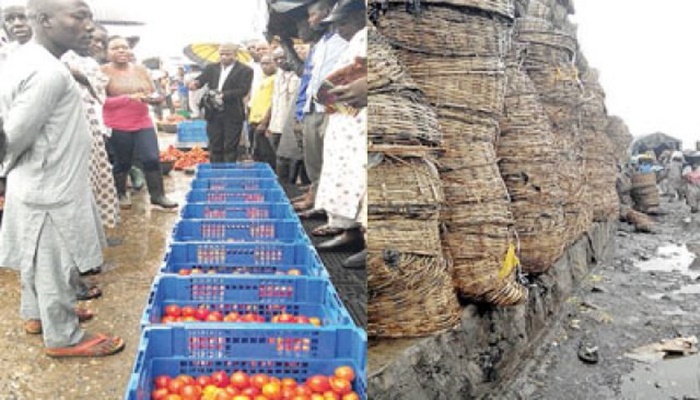
As part of effort to curtail tomato losses in the country, Growth and Employment in States – Wholesale and Retail Trade (GEMS4), an economic development project jointly funded by the World Bank and DFID/UKAid, took good handling packaging campaign for perishable produce to Mile 12, Market, Lagos.
GEMS4 is focused on increasing incomes and employment opportunities in the wholesale and retail sector by providing solutions to systemic constraints and the inclusion of small and micro enterprises into better functioning market systems.
In a statement in Lagos by GEMS4 media officer, Mr. Michael Adaji, the overarching goal is the creation of 10,000 new jobs and increased incomes for 500,000 people, especially for the poor and for women as well as using the Making Markets Work for the Poor (M4P) approach, GEMS4 is working with market actors, linking them and changing market incentives so they serve each other better.
It stated that the project will build local capacity so that the market better meets the long-term needs of the poor and noting that the constraint Nigeria produces 1.5 million tons of tomatoes each year but over 40 per cent of annual produce is disposed of due to depreciation and spoilage caused by several constraints, including poor produce handling and poor produce packaging.
“On the average, each 350 basket truckload (18 metric tonnes) loses 144 baskets; this often represents financial losses of about N902, 000 cost of the whole truckload.
“Over the years, the financial losses due to produce depreciation and spoilage have been borne by actors in the perishable produce value chain as an unavoidable hazard and incomes remain perennially low, despite a burgeoning population presenting significant commercial opportunities.
“Farmers and traders lack the skills, tools and incentive to ensure preservation of produce quality and sales margins. They lack skills, standard packaging materials and infrastructure to incorporate routine good handling processes – washing, sorting, grading, weighing and packaging tomatoes – in a way that maintains quality and justifies a price premium at the retail point of sale”, it added.
The statement further added that poor quality produce is still sold, albeit at heavily reduced prices, and consumers bear the consequences of purchasing poor quality produce – short shelf life and health risks associated with non-adherence to hygiene and food safety standards.
“Since tomato losses are a perennial problem and the research conducted by GEMS4 revealed that good handling practices (GHP) and the use of plastic crates have been demonstrated to be effective in mitigating losses, the opportunity exists for farmers and traders to adopt GHP, the use of plastic crates and supply produce to markets where the demand exists for good quality tomatoes.
“The GHP initiative is an access to skills intervention, aimed at building the capacity of perishable produce market actors to properly handle, package and protect produce in a way that ensures quality, extends shelf-life and preserves sales value. GEMS4 provided in-depth training for 75 master trainers in three Nigerian States – Kano, Kaduna and Lagos. Master trainers now provide on- the- job training to enable farmers and traders preserve produce quality and increase incomes across the value chain”, it noted.
Master trainers also encourage the packaging of produce in hardier packaging than the traditional cylindrical raffia baskets and advocate the establishment of packing houses where GHP can be practiced.
Initiative partners include Fruit and Vegetable Dealers Community Development Association of Nigeria (FVDCDAN); Pampida chilli pepper cluster; Tubali Development Initiative; CBN-NIRSAL; Bank of Agriculture; Skye Bank; Agricultural Development Project (ADP); Ikara Tomato Processing Plant Kaduna; Dangote Farms Kano; Long Cottage Aggregation Ventures Limited Ogun; Tomato Jos Farming and Processing Limited Nasarawa.







Comments are closed.